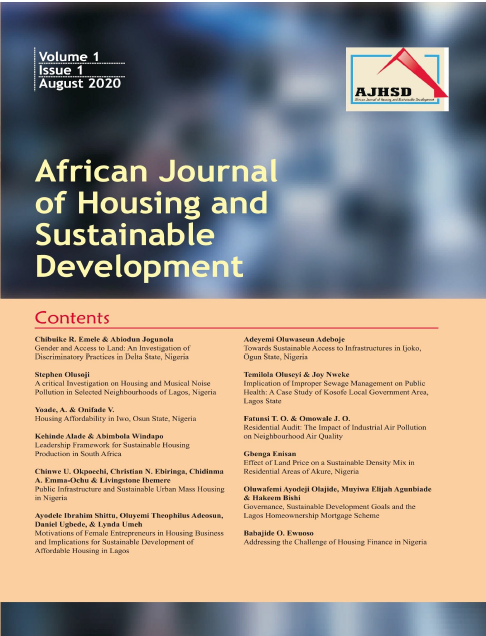Gender and Access to Land: An Investigation of Discriminatory Practices in Delta State of Nigeria
Abstract
The scourge of gender discrimination with respect to land accessibility in developing countries has been very disturbing. It is far from being eliminated and has the potential of widening the socioeconomic gap between men and women, with women slipping further down the poverty valley. This study reports an empirical investigation of gender-based discriminatory practices affecting access to land and their consequences in Nigeria's south-south state of Delta. Apart from establishing the extent and prevalence of such practices in the area, the study also evaluated mitigating strategies and assessed their workability in Nigeria. Using a structured questionnaire administered on 323 respondents who were selected through cluster sampling techniques, the researchers found that customary laws, high levels of financial incapability and ineffective land laws were the most significant factors affecting women's access to land in the area. The worst affected groups were widows and divorced women. The study therefore recommends that policymakers should demonstrate strong political will and promote affirmative action by enacting appropriate and effective legislations. Where the need arises, they should also review existing laws and policies to align with the Sustainable Development Goals (SDGs). The study concludes that implementation of laws that deal with gender inequality and women's access to land cannot be effective if there are no strong institutions.

